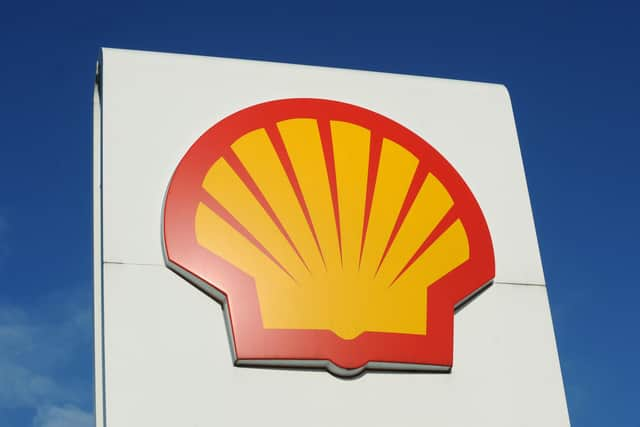Shell flags $2 billion hit from UK and European windfall taxes in last quarter
The revelation comes after bosses at the group said in October they had not paid any UK windfall taxes due to heavy investment in the North Sea, where Shell remains a key player despite the area’s maturity. In an update, the firm told investors that it will face a hit to earnings for the final quarter of 2022 due to the increased UK energy profits levy and additional EU taxes.
In May, the UK government announced the windfall tax on the profit of oil and gas companies, with the new Chancellor announcing in November that this would be increased from an original 25 per cent to 35 per cent.
Advertisement
Hide AdAdvertisement
Hide AdIn the third quarter, Shell benefited from an 80 per cent investment allowance linked to the UK windfall tax. This allowance was also significantly reduced as part of the Chancellor’s autumn statement. In the previous quarter, Shell’s adjusted earnings more than doubled to $9.5bn in the three months to the end of September when compared with the year before. Nevertheless, this represented a fall against the previous quarter.
In total, the group said it now expects to have paid between $4.3bn and $4.7bn in global taxes over the fourth quarter. London-listed Shell is due to publish its full results for the 2022 financial year on February 2.
In its pre-results update, the firm also said earnings from its liquefied natural gas (LNG) trading operations are likely to have been significantly higher in the fourth quarter of last year despite a slide in output owing to plant outages. Trading in its chemicals business is expected to have been “significantly lower” in the final quarter of 2022, compared with the previous quarter.
Russ Mould, investment director at financial services firm AJ Bell, said: “In its usual teaser of quarterly results Shell has a classic good news/bad news combination to offer shareholders. First the good news: the company’s large liquefied natural gas business is expected to have delivered a very strong performance despite lower output on plant outages. This demonstrates just how robust LNG pricing is right now as countries scramble to replace Russian gas.
“Now for the bad news: lower oil prices will hit the oil products part of the business and Shell has quantified the material impact of freshly introduced windfall taxes in the UK and Europe – which are now expected to run into the billions. It would be disingenuous for Shell to gripe too much about these new levies given recently departed [chief executive] Ben van Beurden argued they were ‘inevitable’ back in October.”


Victoria Scholar, head of investment at Interactive Investor, noted: “BP and Shell achieved sky-high profits in 2022 as the war in Ukraine sent oil and gas prices sharply higher, boosting their earnings, which prompted the UK government to increase its windfall levy. However, Shell warned in November that it will be evaluating its plans to invest £25bn in Britain over the next ten years as a result, suggesting that Shell could invest less in UK energy.”
Comments
Want to join the conversation? Please or to comment on this article.